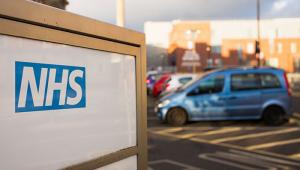Each authority spent on average £29,152 on flights between 1 January 2015 and February 2018, research by the TaxPayers’ Alliance said.
Amongst 348 local authorities that responded to the organisation’s Freedom of Information requests, 144 return flights were taken in ‘non-economy cabins’, 18 in business class and 17 in premium economy flights.
“There is no justification for councils flying in business or first class,” the report suggested.
John O’Connell, chief executive of the Taxpayers’ Alliance, said: “These local authorities need to find millions in savings in the coming years and with modern technology like video conferencing they needn't spend large sums of taxpayers money on plane tickets.”
He added: “For many families, council tax is the largest monthly bill to pay, and it’s shocking that their hard-earned money is being misspent by some local authorities in this way.”
In England councils have spent an annual average of £976,817 on flights since 2015, the Taxpayers’ Alliance said.
Sunderland City Council was found to have spent £26,583 on six business class flights to Tokyo while Northamptonshire County Council paid out £9,325 on six flights to Montego Bay, Jamaica. Three of the twelve legs of Northamptonshire’s return journeys were in premium economy.
A Northamptonshire spokesperson told the local paper: “There are a variety of reasons local authorities purchase flights, including overseas recruitment and travel relating to our role as corporate parent to looked-after children.
“We do our best to get the best value for flights given that this is public money that is being spent.”
Northamptonshire revealed last month it had managed to balance its books for 2017-2018 but will have to recoup £13.7m of reserves – described as a “unprecedented level” - in the current financial year.
Graeme Miller, leader of Sunderland City Council, said that the figures reflected the city’s “international reach” and added “in case anyone has forgotten, Sunderland has more than 26,202 jobs in 87 internationally-owned companies originating from 20 different countries”.
The council has a policy of allowing business class travel on flights of eight hours or more, which showed the “duty of care the city council has for its employees and members,” Miller added.
A spokesperson for the Local Government Association said: “There are many reasons why council officers or councillors need to travel long distances, from attending major conferences and specialist training to vital trade missions which have attracted inward investment and generated millions of pounds of investment and thousands of local jobs.
“Councils weigh up the costs and benefits of long distance travel and strive to get the best deal available. Air travel can be the most economical option domestically, when compared with rail costs for example.”
The research found that at least 5,393 non-domestic return flights were taken by 182 local authorities.











